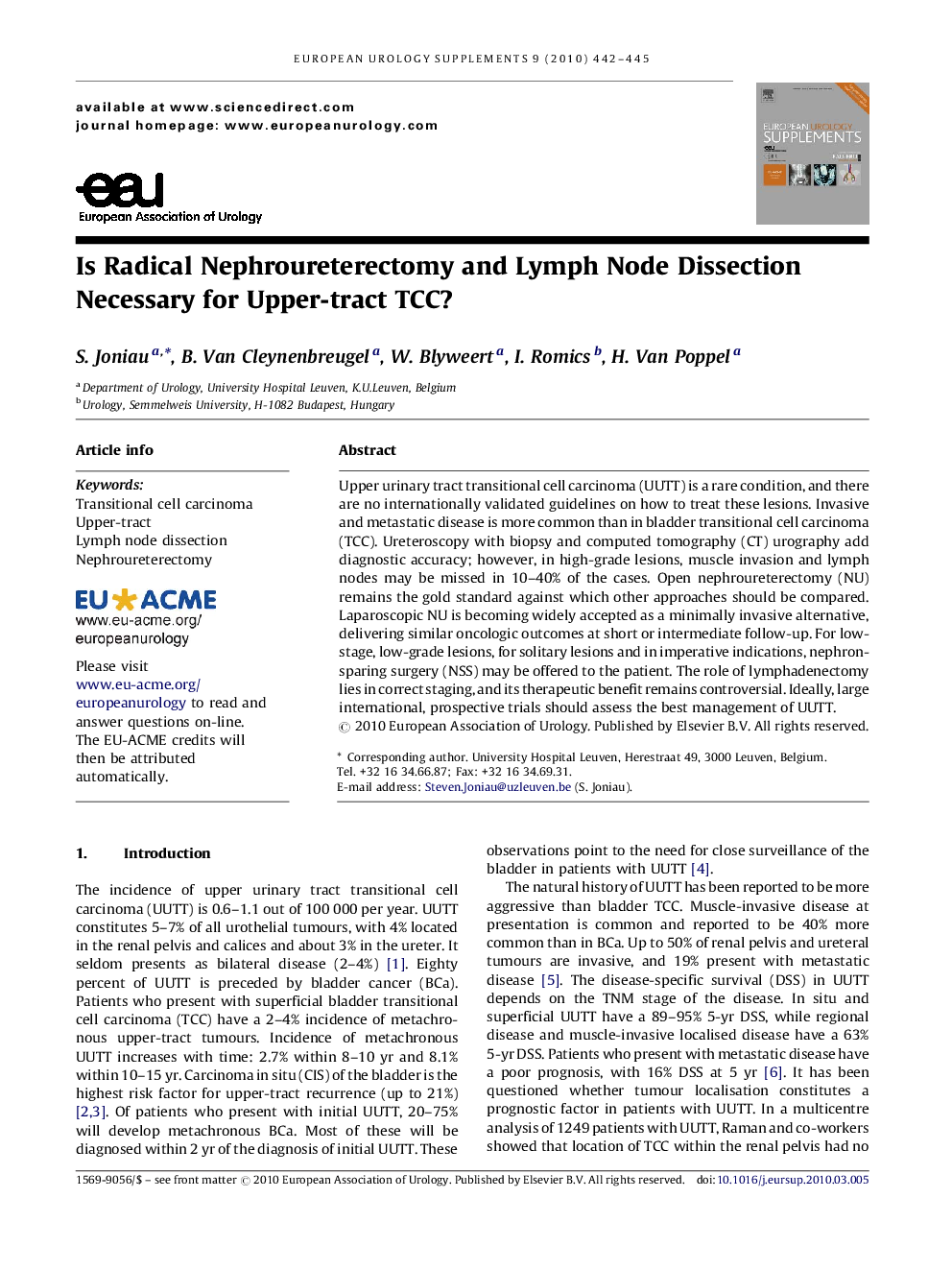| Article ID | Journal | Published Year | Pages | File Type |
|---|---|---|---|---|
| 3929648 | European Urology Supplements | 2010 | 4 Pages |
Upper urinary tract transitional cell carcinoma (UUTT) is a rare condition, and there are no internationally validated guidelines on how to treat these lesions. Invasive and metastatic disease is more common than in bladder transitional cell carcinoma (TCC). Ureteroscopy with biopsy and computed tomography (CT) urography add diagnostic accuracy; however, in high-grade lesions, muscle invasion and lymph nodes may be missed in 10–40% of the cases. Open nephroureterectomy (NU) remains the gold standard against which other approaches should be compared. Laparoscopic NU is becoming widely accepted as a minimally invasive alternative, delivering similar oncologic outcomes at short or intermediate follow-up. For low-stage, low-grade lesions, for solitary lesions and in imperative indications, nephron-sparing surgery (NSS) may be offered to the patient. The role of lymphadenectomy lies in correct staging, and its therapeutic benefit remains controversial. Ideally, large international, prospective trials should assess the best management of UUTT.
